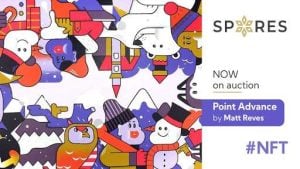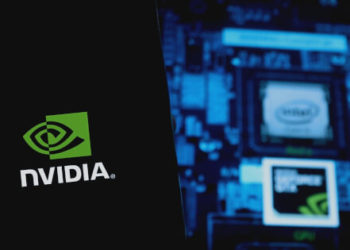Blockchain technology has drastically changed the way content and artworks are discovered, shared, and importantly how the creators themselves are compensated. Thanks to evolving crypto-based technologies, NFTs in particular, a lot of issues previously found complicated are now seen as an easygoing task with less or no additional fees.
From art and music to esports and in-game items, non-fungible tokens (NFTs) are gaining notoriety now because they are becoming the most preferred way to buy and sell digital artwork.
NFTs, generally one of a kind or of a very limited run, are bought and sold online, frequently with cryptocurrency. They also have unique identifying codes including a built-in authentication mechanism, which serves as proof of ownership.
The technology is ready-made to serve the creative industries, with provable fairness and data integrity at the heart of what advantage blockchain has to offer.
Smart contracts embedded into NFTs provide artists and content creators with unique tools to monetize their wares. They no longer have to rely on intermediaries to sell their art. Instead, the artist can sell it as a digital token directly to the fans, who would appreciate authentic interactions with the creator.
Furthermore, artists get exclusive ownership rights and thus can program in royalties to receive a percentage of future sales of their works to new owners. This is a very unique and attractive feature as content creators often do not capture any future proceeds after their artwork is first sold.
This can be done through storing specific information inside the NFT’s metadata, such as their signature and revenue sharing rules. As such, the creator never has to worry about tracking his piece down.
There are several ways new blockchain ventures like Spores (a full stack NFT-DeFi platform) are bringing blockchain and the creator economy together.
Many aspects of Spores’ offering are worthy of lengthy discussion. But for the purpose of this article, the most notable part is the features it offers to benefit all participants on their platform. This point is what matters for artwork and content creators, game developers, entertainment producers, clubs, collectors, celebrities and fans, etc.
To do so, Spores bills itself a platform that is cross-chain interoperable — allowing users to issue NFTs, auction and exchange the assets and utilize other DeFi products without barriers.

NFTs are having their big-bang moment
NFTs trading volume has already entered the frenzy stage, and many crypto-native investors want to ride the market for higher profits. This makes the NFTs liquid and easily tradable, which provides the ability for an instant transfer of ownership.
Spores also leverages open blockchain standards to eliminate intermediaries for equitable creation and distribution of content.
That said, the main motivation of similar projects is to create a modified standard so that NFTs can be minted and sold across different platforms and blockchains. This makes it possible for the creator to set a royalty amount that can be paid on any marketplace that implements his tokens.
Involving Defi concepts here allows fans to make a bet on the creator’s potential, just as they do when investing in stocks. In some cases, collectors are able to buy stakes in an artist’s work before it’s even been released – and then reap the rewards of this investment down the line. This also creates an alternative source of funding for the artists themselves.
Spores Network, for example, believes that content is king and expects to launch a venture fund dedicated to NFT + DeFi projects, including blockchain game publishing, that can expand the reach of its ecosystem.
In this sense, Spores takes the advantages of blockchain and smart contract technology to authenticate NFTs, track their ownership record and buy/sell history, and decentralize their trading procedure. These operations are all done while complying with intellectual property and copyright licenses to protect the benefits of the ecosystem participants.
To sum up, artists, musicians, developers, and financiers face many challenges that are intrinsic to the current ecosystem. The NFTs and wider blockchain technology resolves many pain points in this space, most of them owed to the centralized command structures that set the rules.
Although many platforms host thousands of NFT creators and collectors, the verification processes for listings aren’t consistent. That said, do your research, and if you decide to take the plunge, proceed with a healthy dose of caution.
Credit: Source link












































